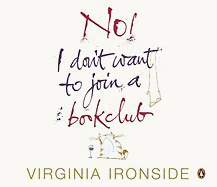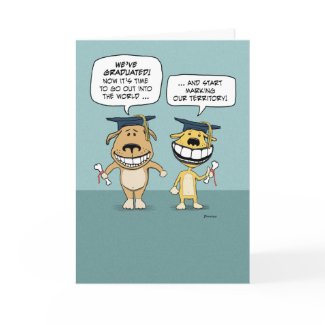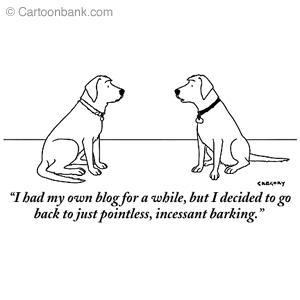 |
| Do you feel like this? |
On Saturday 8 October 2011, as part of the first
East London Literature Festival, I attended the Reading Group Conference which took place at the
University of East London.
At the event,
Dr Roberta Garrett (a Senior Lecturer in Literature and Cultural Studies) considered the value, impact and cultural importance of reading groups. She raised the contraversial question of whether reading groups make a useful contribution to literary culture.
In considering this question, we have to remember several things. First that reading groups are not new and in fact date back to the creation of the novel in the early 18th century. Second, reading groups are not homogenous - they reflect different literary trends, age groups and membership groupings. Reading groups can very broadly be defined into those that meet political or educational needs such as feminist or marxist reading groups and those that are more commercially orientated.
The modern trend in joining a book group is part of this second commerical definition, as demonstrated by the commercial success of the
Oprah Winfrey Book Club in the United States (originally set up in 1996) and the equally popular UK equivalent, the
Richard and Judy Book Club (set up in 2004).
Like them or not, these groups demonstrated the power of book clubs in relation to publishing. It is estimated that the books featured as part of the Oprah Book Club (70 titles) resulted in an estimated 55 million copies. A prime example is that after featuring Leo Tolstoy's novel "Anna Karenina" as part of the club's selections, the book went to the top of the US bestseller lists. Likewise in the UK, the Richard and Judy Book Club has had an equally powerful effect, so much so that Amanda Ross, the show's producer was listed as the most influential woman in publishing (
The Queen of TV Bookclubs Amanda Ross).
Oprah and Richard & Judy are only the tip of the iceberg and it has been estimated that there are around 50,000 book groups in existence in the UK. So why are they so popular?
Roberta Garrett presented various factors for the modern development of reading groups including the end of the price fixing resulting from the Net Book Agreement, the rise of e-commerce, the expansion of graduate and literary education, expansion of literary prize culture.
This is before even touching on some of the most fundamental reasons for book groups:
- the opportunity to meet others
- chance to expand our reading experiences
- it's fun to chat and socialise
The very reasons above are what critics of reading groups find fault in. They dismiss this very social aspect of reading and are inclined to agree with Virgina Woolf's belief that "The pursuit of reading is carried on by private people".
Roberta Garrett highlighted some of the critics of reading groups which primarily seem to focus on a snobbish, elitist view of reading. These critics include D J Taylor or Giles Foden. These criticisms seem to focus on different approach to literary analysis and reviewing which upholds style and technique as the arbiter of judging a book's value.
Reading groups in comparison, by their very nature, are driven by a different agenda. They are more driven to look at context, topics and themes.
Garrett believes that criticism of reading groups is founded on two aspects - class and gender. In terms of gender, it is particularly noticeable that approximately 78% of reviewers in the London Review of Books are male. In comparison, it is estimated that about 69% of book club members are women. Another notable statistic is that 48% of women describe themselves as 'avid readers' compared to only 24% of men.
The presentation offered a really great foundation for a more in depth conference examining the role and power of book groups. Given that the UK's
National Reading Group Day took place on 25 June 2011, I personally think there is still room and space for reading groups as part of our reading and literary landscape and there should be more examination of their roles in our society.
 |
| The Reading Agency's campaign - National Reading Group Day |
Now it's over to you:
- What is your opinion of reading groups?
- Are you a literary snob who would never join a book group?
- If you are a member of a book club what type of member are you and how do you contribute?
- How do you think reading groups help libraries and reading?
- Does the idea of joining a book club conjure up images of a "troop of bored housewives sitting around their local Starbucks weekday mornings after they’ve dropped off their kids at school, killing time together by offering their empty insights on the latest Nicholas Sparks novel"?
- What books would you recommend for a great book club read?
Join the debate.......
 A summary of the CPD23 Things programme of career development learning......
A summary of the CPD23 Things programme of career development learning...... It's impressive how much we've covered throughout the CPD23 Things programme which has involved learning not just about new tools and services but also crucially about ourselves and our impact on others.
It's impressive how much we've covered throughout the CPD23 Things programme which has involved learning not just about new tools and services but also crucially about ourselves and our impact on others.  For lots of reasons, the answer is yes. As I am increasingly coming to appreciate, blogging is a great (although scary) form of self-expression and dialogue. Being part of the CPD23 Things programme has felt like a community and I hope to continue with this feeling and sense of support.
For lots of reasons, the answer is yes. As I am increasingly coming to appreciate, blogging is a great (although scary) form of self-expression and dialogue. Being part of the CPD23 Things programme has felt like a community and I hope to continue with this feeling and sense of support. 




